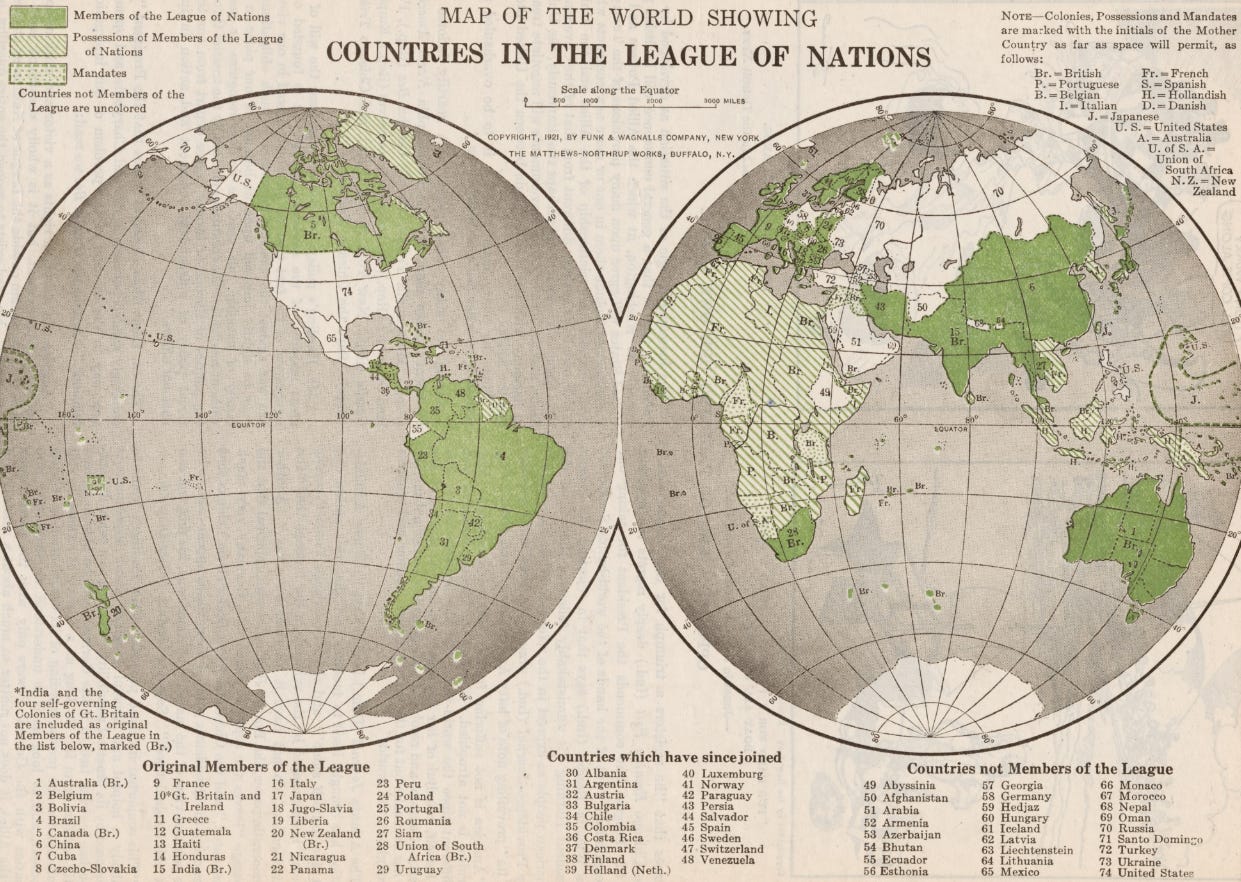Week signals: A different league
Plus: watch points for the US, Venezuela, Ukraine, Russia, France, and the Czech Republic..

Hello,
In this week’s edition of Week Signals:
IN REVIEW. A broken mirror to world order, reform or revolution, and the future of intergovernmentalism.
UP AHEAD. The shutdown showdown, Christmas in Caracas, false flag warnings, French protests, and Czech elections.
And don’t forget to connect with me on LinkedIn.
Week Signals is the Saturday note for clients of Geopolitical Strategy, also available to GD Professional subscribers on Geopolitical Dispatch.
The Week in Review: The UN and a changing world
The week began and ended with speeches at the United Nations. The UN’s leaders’ week is an annual ritual, but this one was different insofar as seldom in its 80-year history has the organisation been seen as so divided, ineffectual and rudderless. And while, for better or worse, the rest of the world carried on, refracted through the UN headquarters at Turtle Bay, an image of spiralling chaos, from Gaza to Ukraine, and climate change to AI governance, seldom looked so hopeless.
It is easy to blame the UN’s structures, bureaucrats, processes and systems for its failings.
The Security Council is dominated by a now seemingly arbitrary group of five permanent members, the P5 – Britain, China, France, Russia and the US – three of which only have a tenuous claim to superpowerdom and one of which, Russia, has a nominal GDP smaller than the market caps of six of Wall Street’s Magnificent Seven.
The General Assembly is the worst kind of rubber-stamp forum, long on symbolic point-scoring and meaningless diversions (where would we be without World Toilet Day, 19 November?), but short on global governance, solutions and norm-building. And with 193 members of equal standing – with Tuvalu’s 10,000 having the same vote as India’s 1.4 billion – it’s just as undemocratic as the P5.
And then there are organs like the Economic and Social Council, the UN Secretariat and the various acronym specialised agencies and funds that, while conducting important work, are equally plagued by historic inequities and political compromises. From the World Health Organization to the International Monetary Fund, and the Human Rights Council to the UN Relief and Works Agency for Palestine Refugees, controversy is not just periodic, but often fundamental.
Yet the UN is not the international system, but the creation of the international system, and its merits and faults are those of humanity at large. With a budget smaller than the New York Police Department – much of it held up by the US, traditionally the UN’s biggest contributor – where its real problem lies is that the international system has evolved far beyond the parameters of 1945. And while the UN was largely successful as a neutral forum between Cold War adversaries, and as an instrument of US humanitarian statecraft in the 20 or so years of unipolarity that came afterwards, today it no longer seems fit for purpose, whether as a mechanism through which world issues can be resolved, or global challenges, from peacekeeping to aid delivery, can be effectively managed.
The UN undoubtedly needs reform, if not revolution, but to understand its problems, the possible solutions, and what is likely to come next, we need to go beyond the organisation itself and look at the order it represents. For a multilateral order to survive the coming era of multipolarity, let’s take a look at some previous orders and institutions, including the Congress of Vienna, which governed the Concert of Europe, and the brief and much-misunderstood League of Nations of the interwar system. By analysing these and other UNs of the past, we might be able to see the contours of the UN of the future.


